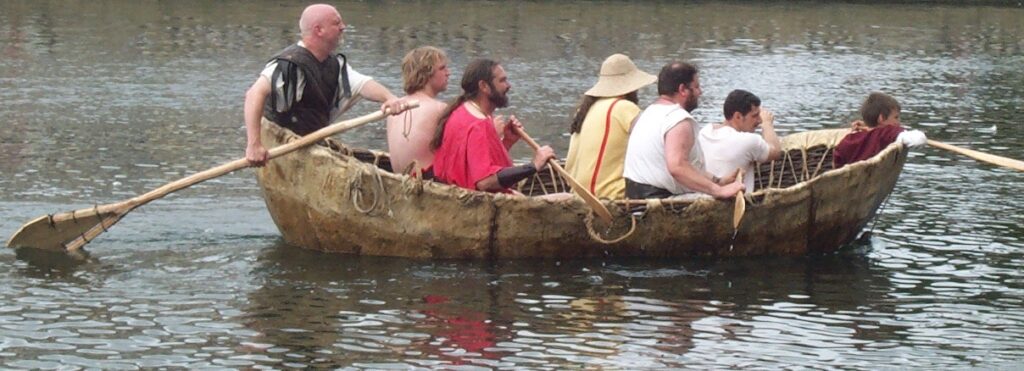The History of Lindisfarne part 2: End of Empire

After the Romans left, Britain split into many small kingdoms as the native Britons (Christian, literate and heirs, in their minds at least, to Roman civilisation) slowly retreated before the advance of the incoming Anglo-Saxons (pagan, illiterate and never subject to the Empire). This was a slow-motion conquest, taking centuries, and Oswald’s ancestor, Ida, had launched the northern line of attack when he took the stronghold of Bamburgh in the middle of the 6th century.
Oswald’s father, King Æthelfrith, had hugely expanded the kingdom of Northumbria’s power at the start of the 7th century, only to be killed in battle. By his brother-in-law. Politics was a bloody family business then. With Oswald’s Uncle Edwin in charge, Oswald’s mother thought it better to go into exile to the sea-spanning kingdom of Dal Riada (present-day Argyll and County Antrim).
Oswald grew up amid the sea lochs and islands of the north west, becoming fluent in Old Irish. Most importantly, for the future of England, he sailed a currach (traditional boat with animal hides stetched over a wooden frame) to Iona. Here, Colm Cille had founded a monastery and it was here that Oswald embraced the religion of the people his ancestors had displaced: Christianity.
0 Comments